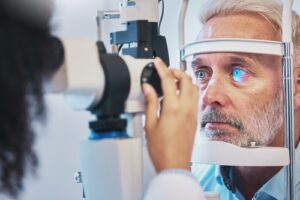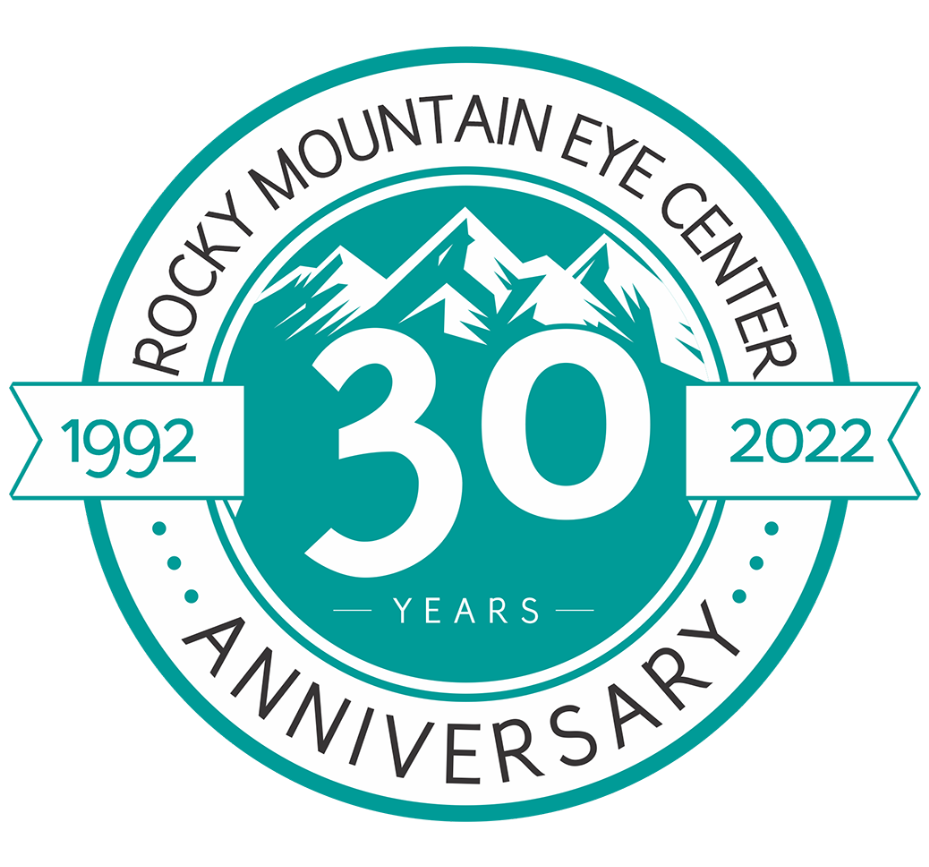
Has It Been Too Long Since Your Last Eye Exam?
Posted by: Rocky Mountain Eye Center in Eye Care on August 18, 2023

If you don’t wear visual aids or have not had previous issues with your vision, you may have pushed scheduling an eye exam to the bottom of your “To Do” list. While an eye exam can seem like a low priority if your eyes feel healthy and your vision is clear, scheduling an eye exam is as important to your overall health as annual physicals and regular checkups with the dentist.
Keep reading to find out if it’s been too long since your last eye exam!
Your Vision Has Changed

If you need to sit closer to the television to watch your favorite show or hold your phone further away from your face to read your text messages, you should schedule an eye exam. As you get older, you may notice your vision changing.
As a result, you may need glasses or contact lenses, even if this is the first time you’ve needed them. While changes in your vision can occur at any age, they most commonly occur in adults over 40.
With age, your eye’s natural lens loses elasticity, making it more difficult to focus properly or see things up close.
One of the most critical tests performed at an eye exam is measuring your visual acuity. During this test, you’ll be asked to cover one eye and read lines of letters or numbers that get progressively smaller.
Your eye doctor uses this test to determine your visual acuity or the sharpness of your vision.
Driving At Night is Becoming More Challenging
If seeing clearly while you drive at night has become more of a challenge, it’s time to schedule an eye exam. An inability to see in low light while driving at night can pose a danger to you and your fellow drivers.
Difficulty seeing in low light, whether driving at night or trying to read something in a dimly lit space, can indicate serious eye conditions. These can include cataracts, glaucoma, and macular degeneration.
Like changes to your visual acuity, these conditions are often seen in aging adults. Your ophthalmologist uses special ocular diagnostic devices when you go in for an eye exam.
These include ophthalmoscopy and a slit lamp to closely examine the structures within your eyes. Using these devices allows your eye doctor to detect the physical signs and any symptoms caused by these conditions.
You Have Eye Pain

If you are experiencing frequent episodes of eye pain, it’s time to schedule an eye exam. Many things can cause eye pain.
You may suffer irritation due to allergies to more intense pain caused by the symptoms of certain eye conditions, like glaucoma. However, experiencing eye pain is not normal.
If you have eye pain, let your eye doctor know, as they can investigate what’s causing it during an eye exam. During an eye exam, your eye doctor can use certain tools, along with their expertise, to determine the cause of your eye pain and offer treatment to alleviate suffering.
Not all eye pain is the same! If you have sudden intense eye pain or you have an eye injury, it’s a medical emergency. Seek immediate medical attention to keep your eyes healthy and ensure your vision stays safe.
You’ve Been Diagnosed with a Chronic Health Condition
If you have recently been diagnosed with a chronic health condition, this can affect how healthy your eyes are. Make sure to have an eye exam and inform your eye doctor about any new health issues to update your health history. Having this information will allow your eye doctor to stay informed.
If you have a condition like diabetes, this is especially crucial to disclose. Having diabetes increases your risk of developing diabetic retinopathy, which is one of the leading causes of blindness.
Diabetic retinopathy creates pressure in the eye that damages blood vessels in the retina, which can ultimately lead to vision impairment. It is most beneficial to schedule eye exams regularly to prevent chronic health conditions from affecting your vision or ability to see clearly.
Seeing your eye doctor regularly for eye exams allows early diagnosis if there are any threats to your vision. These are much easier to treat when caught in the early stages.
Your Eyes Feel Drier than Usual

If your eyes feel drier and frequently feel itchy, irritated, or cause you discomfort, these may be symptoms of a chronic condition called dry eye syndrome. Dry eye syndrome is one of the most common eye conditions patients can experience.
However, if it’s left untreated, it can cause serious damage to your eyes. Only an eye doctor can diagnose dry eye syndrome during an eye exam.
Once diagnosed, you can begin treatment and start finding much-needed relief. Your eye doctor can prescribe special eye drops to reduce your discomfort.
Depending on the severity of your dry eye syndrome and any symptoms you’re experiencing, they can also offer more intensive treatment options.
As more people spend their working hours in front of electronic screens, it means more susceptibility to developing dry eye syndrome. Eye exams prevent the condition from impacting your ability to see clearly and comfortably.
Do you remember when your last eye exam was? Regular eye exams are a good idea, no matter your age.
But if you wear visual aids due to refractive errors, you’ll need to have annual eye exams to ensure your prescription stays current. Your ophthalmologist may recommend more frequently scheduled eye exams if you have an existing eye condition or have a high risk of developing one. If you have a family history of certain eye conditions like glaucoma, this may mean you need more frequent eye exams.

Eye exams are one of the most important things you can do to keep your eyes healthy. Even if you are not experiencing any of the signs above, eye exams should be a routine part of your healthcare regimen!
Do you need an eye exam? Schedule yours at Rocky Mountain Eye Center in Pueblo, CO, today!



